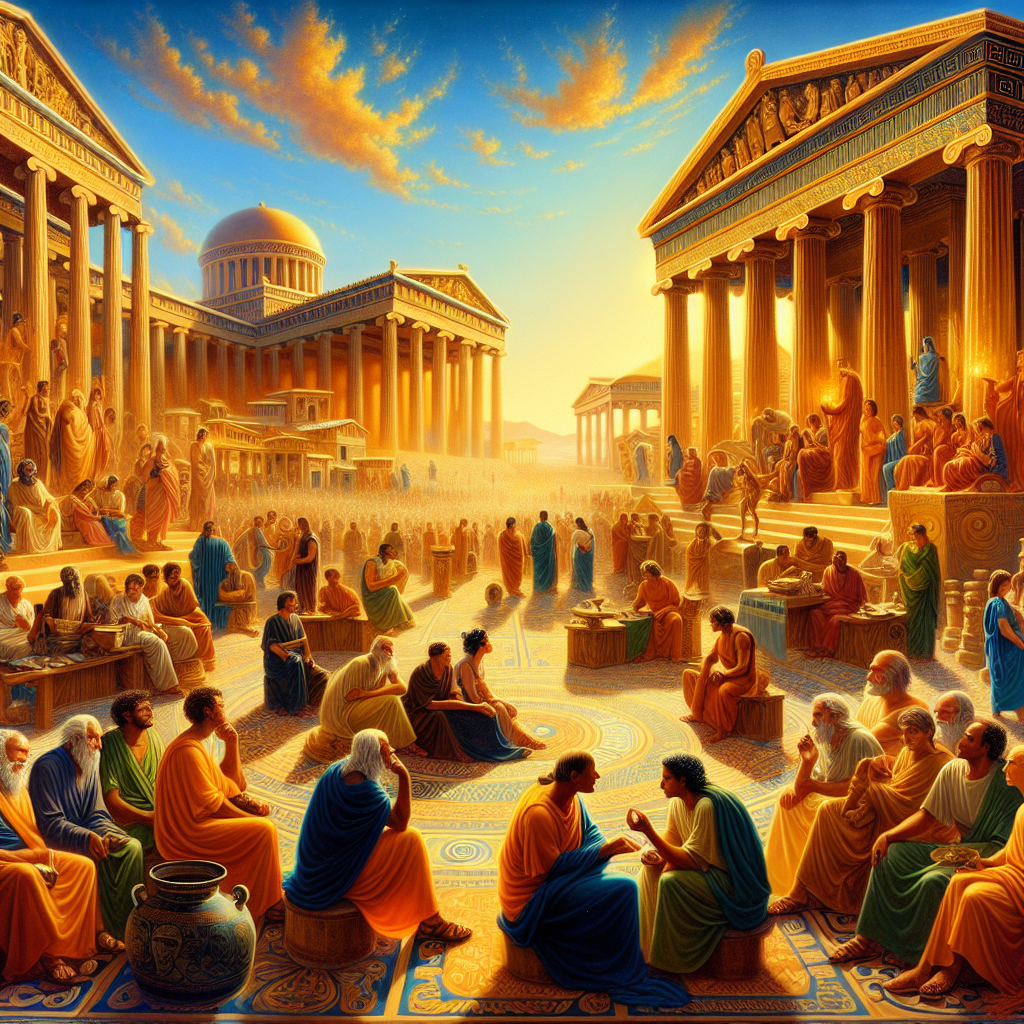From Myths to Mankind: How Ancient Greece Shaped Modern Civilization

When we think of ancient Greece, vibrant images of gods, philosophers, and spectacular architecture come to mind. But what if I told you that the echoes of Greek history resonate in our daily lives more than we realize? Understanding this ancient civilization isn't just about ancient ruins and epic tales—it's about the very foundation of democracy, science, and art that continues to influence us today.
The Birth of Democracy
Often hailed as the cradle of democracy, ancient Athens introduced the concept of citizen participation in governance. While this system was far from perfect and limited to free male citizens, it established principles that would eventually expand to encompass broader populations. Think about this: Greece pioneered the idea that the power to govern should be in the hands of the people, a radical thought that still empowers millions worldwide today.
Philosophy and the Pursuit of Knowledge
No discussion of Greek history would be complete without mentioning its profound philosophical contributions. Thinkers like Socrates, Plato, and Aristotle laid the groundwork for a way of thinking that values reason and inquiry. Their dialogues and teachings encourage us to question our surroundings and strive for knowledge, values paramount in today’s educational systems. When you ponder your existence or decide to challenge the status quo, remember that the seeds of that thought might have been sown by the ancients.
The Arts and Architecture that Inspire
Greek art and architecture are not merely relics of the past; they represent ideals of beauty, balance, and proportion. Structures like the Parthenon and sculptures like the Venus de Milo continue to be celebrated as masterpieces. Their influence seeps into countless designs within our modern architecture, reminding us that beauty is not just seen but felt. The principles of art established in Greece continue to inform our creative expressions, whether through literature, film, or visual arts.
The Scientific Foundations Laid by the Ancients
While the Greeks are often remembered for their philosophical insights, they also laid the cornerstones of modern science. Figures like Archimedes and Hippocrates revolutionized mathematics and medicine, respectively. Their methods of observation and rational deduction laid the groundwork for the scientific method used today. When you visit a doctor or observe a scientific principle in action, you’re engaging with practices that owe their roots to ancient Greek inquiry.
Final Thoughts: Why This Matters
Understanding Greek history is not just an academic exercise but a vital ingredient in grasping the essence of who we are today. The ancient Greeks remind us of the power of ideas, the significance of civic engagement, and the beauty of creativity. As we navigate the complexities of the modern world, let us draw inspiration from their legacies—a reminder that our journey is built on the shoulders of giants whose thoughts, systems, and artistic expressions continue to shape our lives.